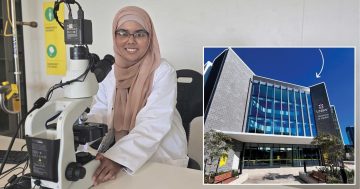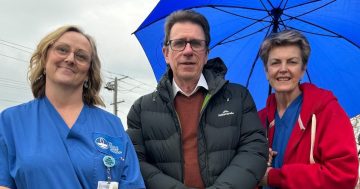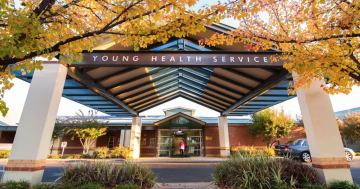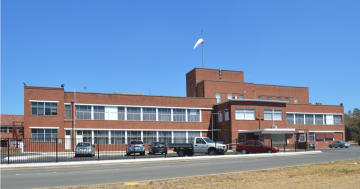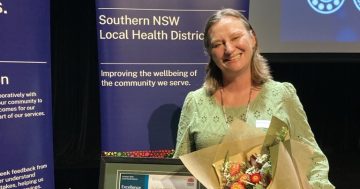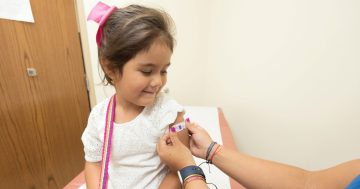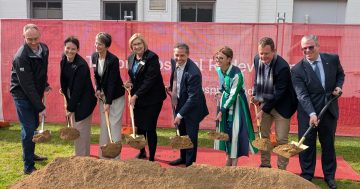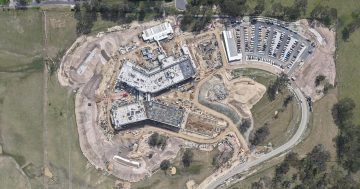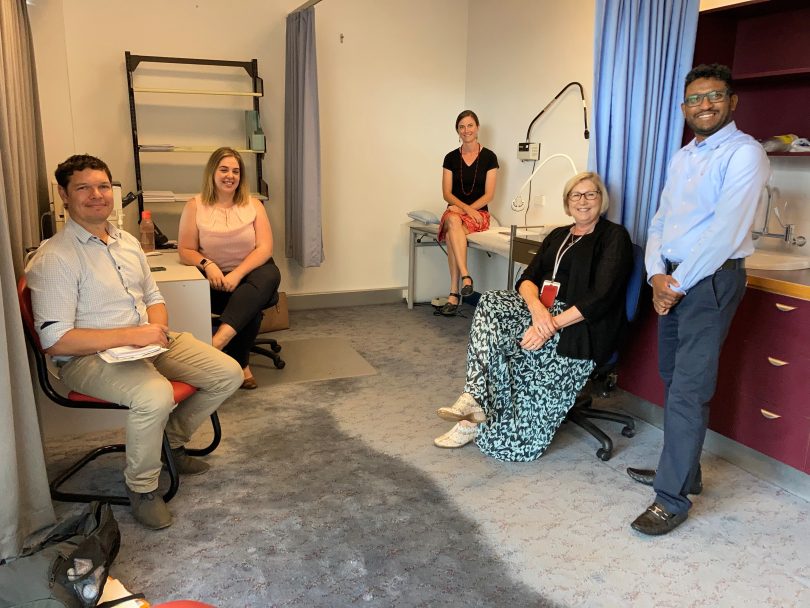
Murrumbidgee Local Health District (MLHD) chief executive Jill Ludford (second from right) and MLHD director, primary health care, Dr Alam Yoosuff (right) visiting Gundagai Medical Centre to meet with new recruit Dr Maggie-Kate Minogue (second from left). Also pictured is Dr Maya Eamus (centre) and trainee Dr Ryan (left). Photo: Supplied.
The benefits of working as a GP in rural NSW won out by a country mile for Dr Maggie-Kate Minogue, who has returned home to put her years of learning to the test.
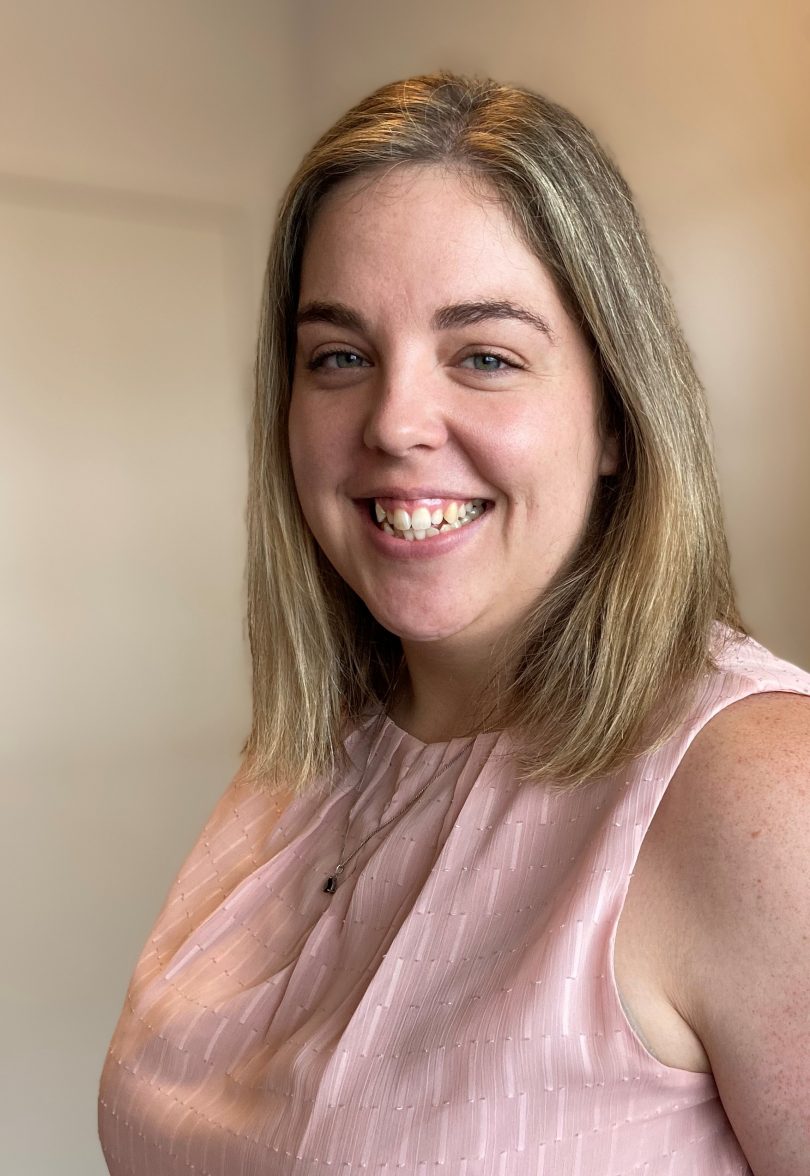
“I’m really drawn to rural medicine because I’m a country girl at heart,” says Dr Maggie-Kate Minogue. “I feel connected to country communities and a sense of fulfilment which comes from caring for rural people.” Photo: Supplied.
Home for Maggie-Kate has always been Harden-Murrumburrah, where her family still lives, but she’ll be working a stone’s throw down the Hume Highway at Gundagai – a town that won her over as a student nurse.
“It was here where I fell in love with general practice and the town,” she says.
“There is a certain charm about small rural towns that draws you in and Gundagai certainly succeeded in doing that for me. The local medical team is absolutely wonderful and have worked hard to provide a supportive environment that fosters good working relationships and encourages ongoing learning.”
Maggie-Kate likens her transition to a homecoming.
“It does feel a bit like coming home,” she says. “It’s a beautiful part of the world and after spending 12 months in Deniliquin – another wonderful spot in rural NSW – it is good to be closer to family.”
After completing the first two years of her university degree in Sydney, Maggie-Kate moved to Wagga Wagga to complete the final four years at the UNSW Rural Clinical School Wagga Wagga Campus.
She now joins Gundagai Medical Centre to complete her rural practice training, and will also work in the Gundagai Multipurpose Service’s emergency department as a visiting medical officer (VMO) under the guidance of Dr Paul Mara and Dr Maya Eamus.
Maggie-Kate is one of five junior doctors to emerge from the Murrumbidgee Local Health District’s (MLHD) Rural Generalist Training Pathway (MRGTP) program which has also recently announced placements in Cootamundra, Temora, Wagga Wagga and Young.
Under the pilot program, trainee doctors work under a single employment model that provides them with the experience, exposure and qualifications they need to become rural generalists with the benefits of having a single employer and certainty about location, income and working conditions for the duration of the pathway.
For Maggie-Kate, the program was win-win.
“By being employed by the MLHD we are able to work and train in both private medical centres and in the hospital environment simultaneously, while having continued access to excellent mentors and support,” she explains.
“The program is unique in that it’s aimed at training general practice registrars who are interested in gaining an advanced skill in a particular area.”
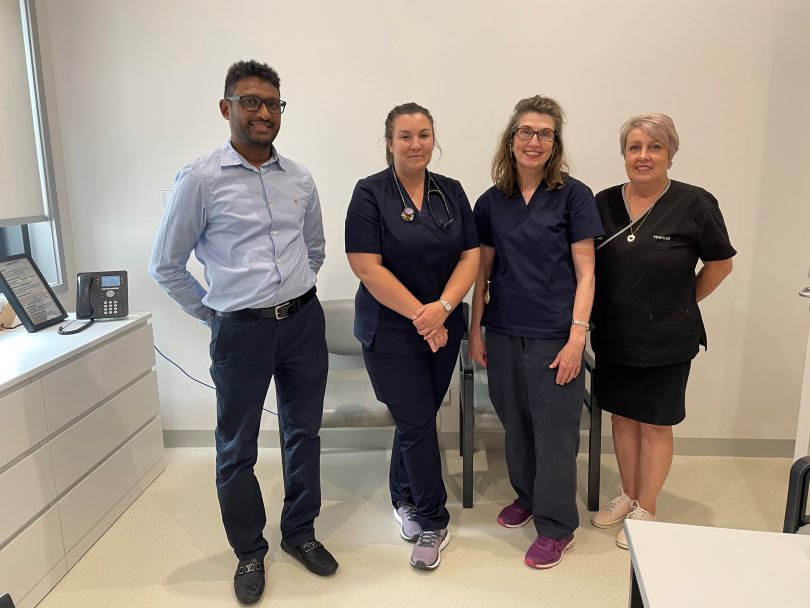
From left: MLHD director, primary health care, Dr Alam Yoosuff, with Dr Rhiannon Baldwin, Dr Fiona Gleeson, and Young Medical Practice manager Therese McGlynn. Photo: Supplied.
Maggie-Kate says getting this advanced skills training in specialist fields – for example, obstetrics or anaesthetics – was often difficult.
“You are mostly going alone, but through the MRGTP I am able to gain advanced skills in palliative care medicine, which is something I hope to use to help the current palliative care services throughout the Murrumbidgee Local Health District,” she says.
For Maggie-Kate, working in rural NSW is a full-circle situation.
“I’m really drawn to rural medicine because I’m a country girl at heart,” she says. “I feel connected to country communities and a sense of fulfilment which comes from caring for rural people.”
Never knowing what will come through the door may offer the spice to her working life, but her desire to take a holistic approach to patient care – following through a patient’s journey with them – is what she considers her greatest opportunity.
“I found that working in a hospital, while rewarding at times, was difficult as people would come and go so quickly and you only got a snapshot of their story,” says Maggie-Kate. “However, in general practice we are privileged to be able to provide the same great quality care over a much longer period of time.”
Working in rural areas certainly presents a number of challenges that don’t stop with physical isolation and the logistics of accessing specialist services, she adds.
“Out here, weather, harvest and natural disasters play a much bigger impact than they do in large cities,” she says. “In saying that, the physical isolation lends itself to some incredible views of this country.”
It also forges connections only a home-grown girl could understand and appreciate.
“The smaller communities means everyone knows you and are often incredibly welcoming and supportive,” says Maggie-Kate.
“The patients in rural areas are some of the nicest patients I’ve ever had the pleasure of working with. It is a completely different way of life out here and I wouldn’t have it any other way.”
Also joining the program, in Temora, is Dr Jo Murphy; Dr Rhiannon Baldwin joins the Young Medical Centre; and Dr Sylvia Lim has arrived in Cootamundra.
Dr Ariah Steel has taken up a trainee position in the Wagga Wagga Emergency Department.
MLHD chief executive Jill Ludford says the pilot program is a historic landmark in the way the careers of junior doctors who are aspiring to become rural generalists in the region are recruited and supported.







